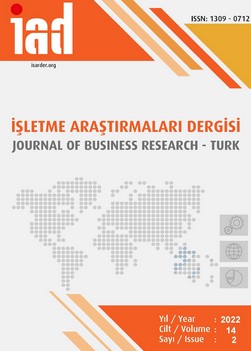Toksik Liderliğin Örgütsel Sessizliğe Etkisi
The Effect of Toxic Leadership on Organisational Silence
Author(s): Özge TurhanSubject(s): Personality Psychology, Organizational Psychology, Behaviorism, Management and complex organizations, Human Resources in Economy
Published by: Orhan Sağçolak
Keywords: Leadership; Toxic Leadership; Organisational Silence;
Summary/Abstract: Porpose – The aim of this study is to examine the relationship between toxic leadership and organisational silence. Design/methodology/approach – The sample group of the study consists of blue and white collar workers. Employees selected from businesses operating in different sectors volunteered to work. 350 employees were reached, analyzes were carried out through 301 valid questionnaires. Findings – As a result of the analyzes carried out to test the hypotheses of the study, the interaction between the dependent and independent variables was determined. Namely; it has been determined that toxic leadership has an explanatory effect on organizational silence. A negative interaction was found between toxic leadership and organizational silence. Since the opposite result of the literature was found, regression analyzes were carried out on the basis of sub-dimensions in order to make a detailed examination and to clarify the reason for obtaining such a result. As a result of the regression analysis, it has been proven that there is actually a negative interaction on the basis of some subdimensions. It has been found that as ignorance increases, acquiescent silence increases, prosocial silence is observed with an increase in negative mental state, and defensive silence is detected in organizations with an increase in ignorance. As a result; toxic leadership affects organizational silence. The most important variable in this interaction is negative mental state. Discussion – It has been determined that the findings obtained as a result of the analyzes carried out for the hypotheses of the study support the relevant literature. In addition, new contributions have been made to the literature since there is no study that examined these variables together before. Suggestions were also developed through the results of the analysis carried out in the study.
Journal: İşletme Araştırmaları Dergisi
- Issue Year: 14/2022
- Issue No: 2
- Page Range: 1213-1224
- Page Count: 12
- Language: Turkish

